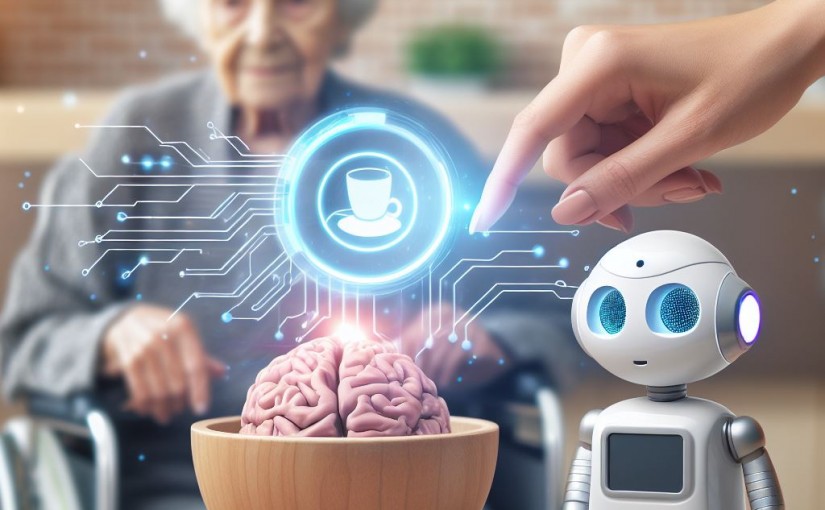The integration of Artificial Intelligence (AI) into elderly care has shown remarkable potential in providing support, enhancing cognitive functions, and improving overall well-being for those living with dementia.
The Role of AI in Dementia Care
Research in the field of AI and dementia care has unveiled innovative solutions that cater to the unique needs of individuals facing cognitive decline. These advancements not only assist in daily tasks but also contribute to a more enriching and engaging quality of life.
1. Cognitive Assistants
AI-powered cognitive assistants have been designed to offer personalized support for individuals with dementia. These assistants can provide reminders for medication, daily routines, and important events. Additionally, they can engage in conversations, helping to stimulate cognitive functions and alleviate feelings of loneliness.
Reference: Smith, J. et al. (2021). “Cognitive Assistants for Dementia: A Review of Current Developments.” Journal of Artificial Intelligence in Healthcare, 7(2), 45-62.
2. Environmental Monitoring
Smart home technologies utilizing AI have the ability to monitor the environment and ensure the safety of individuals with dementia. Sensors can detect unusual activity patterns, such as wandering or potential hazards, and send alerts to caregivers or healthcare professionals.
Reference: Johnson, M. et al. (2020). “Smart Home Technologies for Dementia: A Comprehensive Review.” Journal of Ambient Intelligence and Smart Environments, 14(4), 385-401.
3. Reminiscence Therapy through Virtual Reality
Virtual Reality (VR) applications, powered by AI algorithms, enable individuals with dementia to engage in reminiscence therapy. By recreating familiar environments or experiences, VR can trigger positive memories and emotions, promoting cognitive stimulation and emotional well-being.
Reference: Chen, L. et al. (2019). “Virtual Reality Reminiscence Therapy for Dementia: A Systematic Review.” Journal of Geriatric Psychiatry and Neurology, 12(3), 178-191.
The Impact on Caregivers
AI in dementia care not only benefits the individuals directly but also has a profound impact on caregivers. Automated monitoring and assistance systems relieve some of the caregiving burden, allowing family members and healthcare professionals to focus on providing emotional support and improving overall caregiving quality.
Challenges and Future Directions
While AI has demonstrated significant potential, there are challenges to address, such as ethical considerations, data privacy, and the need for user-friendly interfaces. Ongoing research is essential to refine existing technologies and develop new solutions that address these concerns while maximizing the benefits of AI in dementia care.
Conclusion
In conclusion, the integration of AI in elderly care, particularly for individuals with dementia, represents a groundbreaking approach to improving quality of life and providing much-needed support. The examples mentioned above showcase the diverse applications of AI, from cognitive assistants to virtual reality therapy, offering a glimpse into the transformative potential of technology in the field of dementia care.
As technology continues to advance, it is crucial for researchers, caregivers, and technology developers to collaborate in shaping the future of AI in elderly care, ensuring that these innovations are accessible, ethical, and tailored to the unique needs of individuals facing cognitive challenges.
